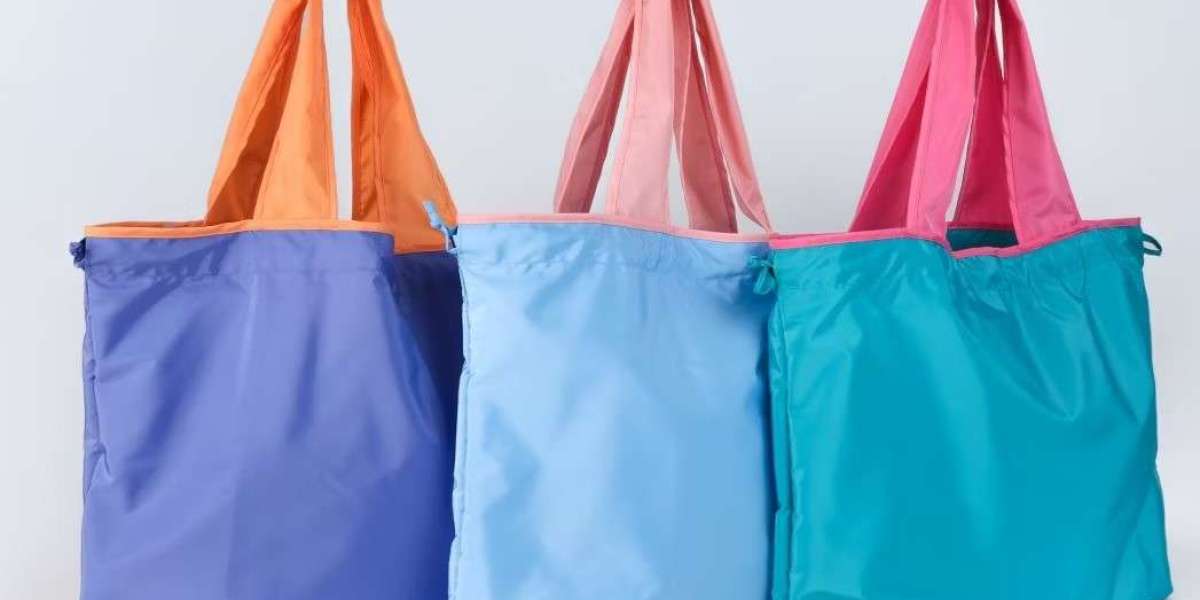Polyester Bags: Durable, Versatile, and Fashionably Functional
In today’s fast-moving, eco-conscious world, polyester bag have emerged as a top choice for consumers and businesses alike. Known for their durability, strength, and versatility, polyester bags are used in retail, travel, sports, fashion, and even in promotional branding. As companies move away from single-use plastics and consumers seek reusable alternatives, polyester bags offer a stylish, long-lasting, and cost-effective solution.
Polyester bags are made from polyester fibers, which are synthetic polymers derived from petroleum-based compounds—primarily polyethylene terephthalate (PET). Polyester is one of the most commonly used materials in textiles, known for being:
Lightweight
Strong and tear-resistant
Water-repellent
Resistant to shrinking and wrinkles
Long-lasting even under frequent use
Polyester fabric can be woven or non-woven, and it’s often used in combination with other materials (like cotton or nylon) to enhance performance or aesthetics.
How Are Polyester Bags Made?
The process of making polyester bags typically involves:
Polymerization: Raw materials (ethylene glycol and terephthalic acid) are chemically reacted to form PET.
Fiber Formation: The PET is melted and extruded into thin fibers.
Weaving or Knitting: The fibers are woven into fabric, which may be coated or treated for water resistance, UV protection, or extra strength.
Cutting and Stitching: The fabric is cut into desired bag shapes and stitched together with reinforced seams, handles, and zippers or drawstrings.
Printing/Branding: Polyester can be screen-printed, sublimated, or heat transferred with logos, images, or designs.
Common Types of Polyester Bags
Polyester bags come in a variety of styles and formats, making them suitable for many different uses:
1. Tote Bags
Simple and versatile, polyester tote bags are perfect for shopping, travel, or promotional giveaways.
Often feature long shoulder straps
Can be folded easily for storage
Ideal for screen printing or sublimation
2. Backpacks
Polyester is a top choice for school, travel, or gym backpacks due to its lightweight strength.
Resistant to tears and wear
Water-repellent versions available
Can include multiple compartments and padded straps
3. Drawstring Bags
Popular among students and at events, these lightweight bags are easy to carry and customize.
Ideal for gyms, sports, or casual use
Compact and collapsible
4. Duffel Bags
Made for travel, sports, or the gym, polyester duffel bags are robust and resistant to weather conditions.
Water-resistant options available
Often include shoulder straps and external pockets
5. Cooler Bags
Polyester outer shells are often used for insulated lunch bags and cooler totes.
Lined with foam or foil for temperature control
Easy to wipe clean
6. Laptop Sleeves and Cases
Durable polyester fabric is commonly used for protective cases and bags for electronics.
Often padded for shock protection
Stylish and lightweight
Advantages of Polyester Bags
✅ Durability
Polyester bags are built to last. They resist tearing, abrasion, and stretching, even when carrying heavy items.
✅ Water and Weather Resistant
Most polyester fabrics repel water, making these bags ideal for outdoor use or travel in variable conditions.
✅ Lightweight
Despite being tough, polyester is incredibly light, making bags easy to carry or transport.
✅ Customizable
Polyester accepts printing, embroidery, or heat transfer well—making it a favorite for branding and promotional bags.
✅ Affordable
Compared to materials like cotton or leather, polyester is less expensive to manufacture, keeping costs low.
✅ Easy to Clean
Polyester resists stains and odors and can usually be wiped clean or washed by hand.
Applications of Polyester Bags
Polyester bags are used in many sectors:
Retail & Fashion: Reusable shopping bags, boutique totes, brand merchandise
Travel & Outdoor: Luggage, backpacks, camping gear
Corporate Promotions: Trade show giveaways, branded employee bags
Education: School backpacks, book bags, lunch bags
Sports & Fitness: Gym duffels, drawstring kits, team bags
Food Delivery: Insulated polyester cooler bags for restaurants or meal services
Polyester Bags & Sustainability
Polyester is a synthetic, non-biodegradable material, which has led to concerns over its environmental footprint. However, when used for reusable bags, polyester’s durability and longevity make it a better option than single-use plastic or paper bags.
Eco-Friendly Options:
rPET (Recycled Polyester): Made from recycled PET bottles, reducing landfill waste and conserving resources.
Upcycled Bags: Some manufacturers repurpose waste fabric or textiles to create functional polyester bags.
By reusing a polyester bag dozens or even hundreds of times, the environmental impact is drastically reduced compared to using disposable alternatives.
Polyester vs. Other Bag Materials
Feature | Polyester | Cotton | Nylon | Non-Woven PP |
Durability | High | Medium | High | Medium |
Water Resistance | High | Low | High | Medium |
Printability | Excellent | Good | Good | Good |
Eco-Friendliness | Moderate (higher with rPET) | High (natural) | Moderate | Moderate |
Cost | Low to Medium | Medium to High | Medium | Low |
Weight | Light | Medium | Light | Very Light |
Care Tips for Polyester Bags
To extend the life of your polyester bag:
Wipe with a damp cloth for daily cleaning
Hand-wash with mild soap if needed
Avoid prolonged sun exposure to prevent fading
Store in a dry place to prevent mildew
Do not iron or expose to high heat (polyester can melt)
Final Thoughts
Polyester bags are a smart, modern solution for businesses and individuals seeking durability, reusability, and customization at a low cost. With options ranging from totes to backpacks and duffels, they serve both functional and promotional needs across industries. And with the rise of recycled polyester (rPET), these bags are also becoming more environmentally responsible.
If you're looking to reduce plastic usage, promote your brand, or offer a reliable alternative to disposable bags, polyester bags check all the boxes: strong, stylish, and sustainable—when used the right way.













